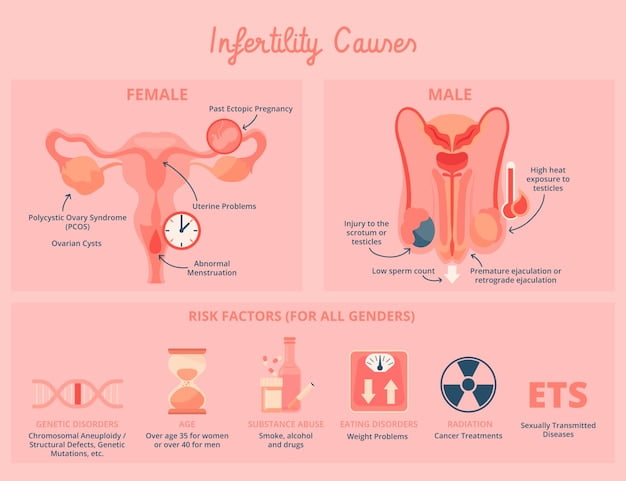
Contents
Introduction
PCOS (Polycystic Ovary Syndrome) is a common hormonal disorder that affects millions of women worldwide. This condition can have various impacts on a woman’s reproductive health, including fertility issues and an increased risk of complications during pregnancy. One such complication is ectopic pregnancy, which occurs when the fertilized egg implants outside the uterus.
In this blog post, we will explore the link between PCOS and ectopic pregnancy, delve into the effects of PCOS on fertility, discuss the relationship between polycystic ovarian morphology and ectopic pregnancy, highlight the complications that PCOS can pose during pregnancy, and provide strategies for managing both PCOS and ectopic pregnancy.
So if you’re curious about how these two conditions are interconnected or seeking guidance on navigating them successfully, keep reading to gain valuable insights from experts in the field. Let’s dive right in!
The link between PCOS and ectopic pregnancy
Research has shown a potential connection between PCOS and ectopic pregnancy, raising concerns for women with this condition. Understanding the link is crucial for managing both conditions effectively.
PCOS and Fertility
Struggling to conceive? PCOS may be the culprit. This hormonal disorder can disrupt ovulation, making it harder for women with PCOS to get pregnant naturally. But don’t lose hope – IVF can offer a solution!
Impact of PCOS on fertility
PCOS can have a significant impact on fertility, causing irregular periods and difficulty in ovulation. This hormonal imbalance can make it challenging for women with PCOS to conceive naturally.
IVF, or in vitro fertilization, is often recommended as a solution for women with PCOS-related infertility. It involves retrieving eggs from the ovaries and fertilizing them in a lab before transferring them to the uterus. IVF can increase the chances of achieving pregnancy for women struggling with PCOS.
Relationship Between Polycystic Ovarian Morphology and Ectopic Pregnancy
Research has shown a possible association between polycystic ovarian morphology and ectopic pregnancy, suggesting that women with PCOS may be at an increased risk. Further investigation is needed to fully understand this connection.
Research findings on the relationship between PCOS and ectopic pregnancy
Research has shown a potential link between PCOS and ectopic pregnancy, indicating the need for further investigation into this complex relationship. Understanding these findings can help women with PCOS make informed choices about their reproductive health.
Complications of PCOS in Pregnancy
How PCOS can complicate pregnancy and increase the risk of complications for both mother and baby. It’s important to be aware of these potential risks and work closely with healthcare professionals throughout pregnancy.
How PCOS can complicate pregnancy
How PCOS can complicate pregnancy: Hormonal imbalances and irregular periods caused by PCOS can make it difficult for the body to maintain a healthy pregnancy, increasing the risk of complications.
Risk factors for ectopic pregnancy in women with PCOS
Women with PCOS have a higher risk of experiencing ectopic pregnancy due to factors such as hormonal imbalances and irregular ovulation. It’s important for them to be aware of these risks and seek appropriate medical care.
Managing PCOS and Ectopic Pregnancy
Strategies to manage PCOS during pregnancy include regular check-ups, maintaining a healthy lifestyle, monitoring hormone levels, and following the recommended treatment plan. Preventive measures for ectopic pregnancy in women with PCOS may involve early detection and prompt medical intervention.
Strategies to manage PCOS during pregnancy
Managing PCOS during pregnancy requires a comprehensive approach, including regular prenatal care, healthy lifestyle habits such as balanced diet and exercise, and closely monitoring hormone levels. It is essential to work closely with your healthcare provider to ensure the best outcome for both you and your baby.
Preventive measures for ectopic pregnancy in women with PCOS
Preventive measures for ectopic pregnancy in women with PCOS include early diagnosis and treatment of PCOS, regular monitoring of hormone levels, and careful management of any fertility interventions.
Expert Recommendations and Guidelines
Clinical management recommendations for pregnant women with PCOS include regular monitoring, lifestyle modifications, and potential use of medications to manage symptoms and reduce the risk of complications.
Clinical management recommendations for pregnant women with PCOS
When it comes to managing PCOS during pregnancy, clinical experts recommend close monitoring of hormone levels, regular ultrasounds to check for any complications, and maintaining a healthy lifestyle with proper nutrition and exercise.
Preconception care and screening for PCOS
Preconception care and screening for PCOS are crucial steps in ensuring a healthy pregnancy. Early detection of PCOS can help women receive the necessary support and interventions to increase their chances of conception. It’s important to consult with healthcare professionals for personalized guidance.
Conclusion
In the end, understanding the connection between PCOS and ectopic pregnancy is crucial for women’s health. Managing PCOS during pregnancy and following expert recommendations can help minimize risks and ensure a healthy outcome.
References
1. Legro RS, Arslanian SA, Ehrmann DA, et al. Diagnosis and Treatment of Polycystic Ovary Syndrome: An Endocrine Society Clinical Practice Guideline. J Clin Endocrinol Metab. 2013;98(12):4565-4592.
2. American College of Obstetricians and Gynecologists. ACOG practice bulletin no 191: tubal ectopic pregnancy [published correction appears in Obstet Gynecol. 2018 Jan;131(1):185]. Obstet Gynecol . 2018;131(3):e65-e77.
3. Barnhart KT, Sammel MD, Rinaudo PF., Zhou L., Hummel AC., Guo W.. Symptomatic patients with an early viable intrauterine pregnancy: HCG curves redefined [published online ahead of print August 24,2020]. Fertil Steril..
4 Simopoulou M , Sfakianoudis K , Maziotis E et al The impact of polycystic ovarian morphology on the risk for adverse obstetric outcomes in singleton pregnancies achieved after assisted reproductive technology Reprod Biomed Online (2020),
5 Li YR , Liu SW , Chen XR et al Association between serum anti-Müllerian hormone level and ectopic pregnancy in women with positive pregnancy tests at emergency department Reprod Biol Endocrinol (2019),
6 Berenson AB,, Rahman M .. Changes in fertility treatments among women with polycystic ovary syndrome from 1998–2002 to 2003–2007 Obstetrics & gynecology ..
These references provide valuable information on the link between PCOS and ectopic pregnancy as well as recommendations for managing these conditions during fertility treatment and pregnancy.




